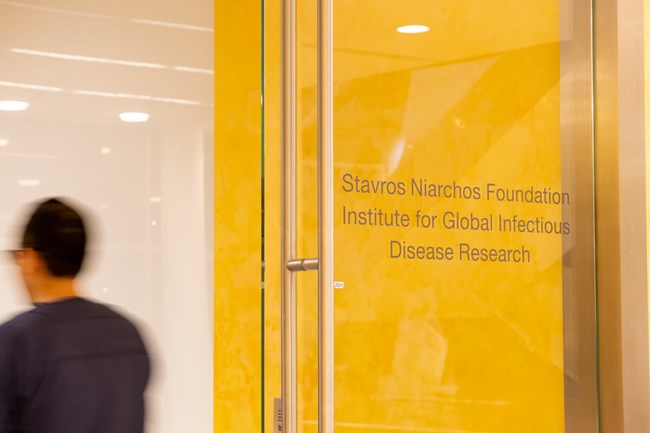
Since it launched last year, the Stavros Niarchos Foundation Institute for Global Infectious Disease Research at Rockefeller University (SNFiRU) has wasted no time in working to bolster society’s readiness for future health crises.
31 research projects across 29 laboratories at Rockefeller have been awarded over $5 million to help create collaborative research partnerships. “The research topics range from the biology of infectious agents to the dynamics of the immune response to pathogens, and also include a number of infectious disease-adjacent studies,” says SNFiRU director and Nobel laureate Charles M. Rice.
One SNFiRU research project, focusing on the tropical infection Chagas disease, will bring together clinicians and scientists from New York, California Florida, and Texas.
Established with a $75 million grant from the Stavros Niarchos Foundation (SNF) as part of its Global Health Initiative, the institute aims to create a framework for scientific collaboration that facilitates improvements in the treatments and preventative measures available. A new symposium, Young Scientist Forum, and seminar series contribute to this of cross-lab interaction.
SNFiRU recently announced the establishment of an international advisory board including field notables like former National Institute of Allergy and Infectious Diseases director Anthony Fauci.
“The SNFiRU international advisory board convenes globally recognized leaders with distinguished biomedical expertise, unrivalled experience in pandemic preparedness and response, and a shared commitment to translating scientific advancements into equitably distributed benefits in real-world settings,” says SNF Co-President Andreas Dracopoulos. “The advisory board will advance the institute's indispensable mission, which SNF is proud to support as a key part of our Global Health Initiative, and we look forward to seeing breakthroughs in the lab drive better outcomes in lives around the globe.”

